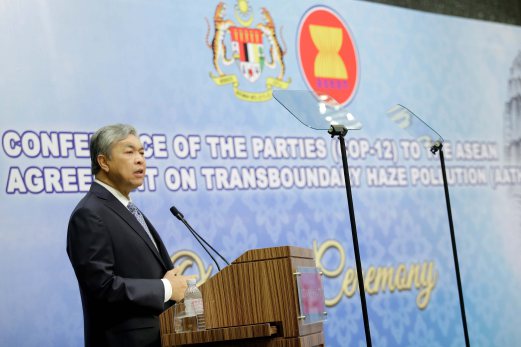
KUALA LUMPUR: The focus on high priority areas are vital towards ensuring objectives of the Asean Agreement on Transboundary Haze Pollution (AATHP) are met, said Deputy Prime Minister Datuk Seri Ahmad Zahid Hamidi.
Zahid, in his opening speech at the 12th meeting of the conference of parties to the agreement here, laid out seven areas which he called on delegates to deliberate on, highlighting the urgency of the required action.
"Due to the lack of resources, some of the activities have been dormant for quite some time," said Zahid.
The high priority areas include technical cooperation in the preparedness to mitigate health risks from haze caused by land and forest fires.
This would require focus on the promotion of zero burning and controlled burning activities, along with conducting table-top and simulation exercises to enhance joint emergency responses, while building the capacity of law enforcement and prosecution.
Zahid also called for a regular forums and dialogues with international donor communities and stakeholders to promote the implementation of the agreement and for partner nations to explore international partnerships to ensure sustainable financial support.
The final priority area Zahid called for was the establishment of an Asean coordinating centre (ACC) to facilitate cooperation and coordination among parties in addressing haze pollution.
He said the 11th meeting in Hanoi in October last year had endorsed a revision of the standard operating procedures (SOP) for monitoring, assessment and joint emergency response, incorporating alert levels, trigger points and action on fire prevention and suppression.
This, Zahid said, had been successfully adopted in Malaysia, particularly in dealing with localised haze incidents in Sabah and Sarawak.
"The AATHP in Hanoi had also adopted a new initiative on developing a roadmap on cooperation towards transboundary haze pollution control, with eight key strategies, measures of progress and actions towards achieving a haze-free Asean by 2020," said Zahid.
"We should not rest on our laurels even with all the initiatives being taken. The haze incidents of 2015 saw the region experiencing unprecedented severity of smoke haze, affecting millions of people.
"Using 2015 as a benchmark of the worst haze incidents in the region, we should be vigilant and undertake concrete actions."
